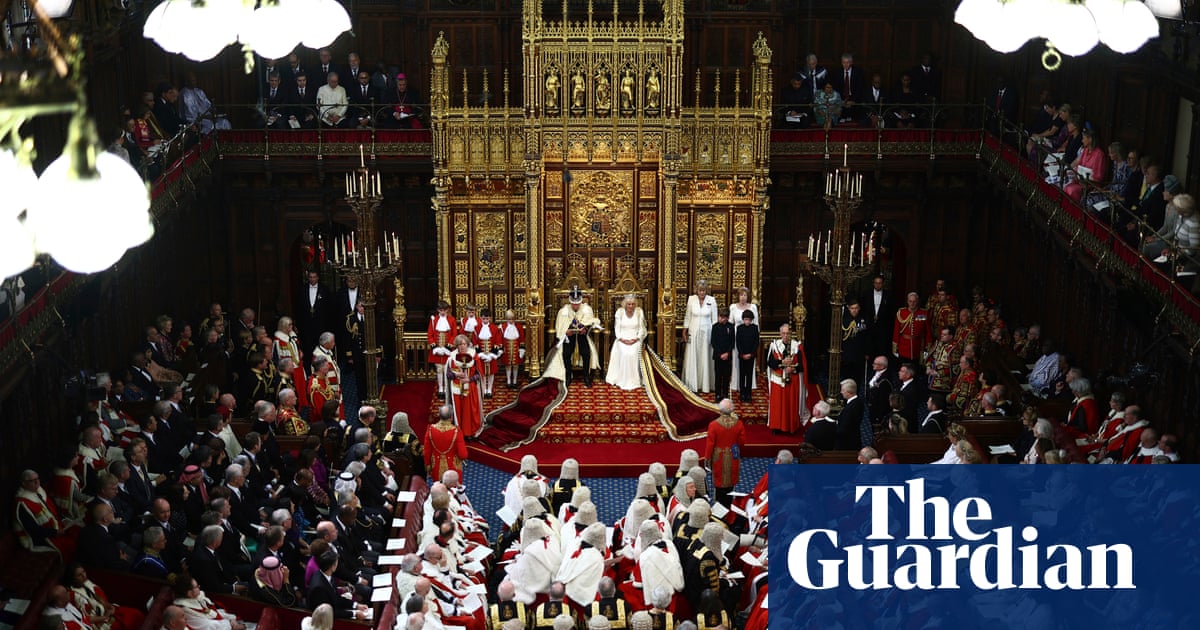
King Charles III delivered the State Opening of Parliament on July 17, 2024, outlining the new Labour government's proposed legislative agenda. The speech included commitments to a clean energy transition and investment in renewable energy such as offshore wind. The government also plans to reform planning rules to accelerate infrastructure projects and housebuilding, strengthen water regulator powers, give police greater authority against anti-social behavior, and remove private school fees tax exemption for funding new teachers. A pledge of economic growth was emphasized as a fundamental mission for the government following the cost of living crisis. The speech also mentioned legislation to place requirements on those developing powerful artificial intelligence models.
The monarch's symbolic political power in modern times was highlighted as he read the speech from the Sovereign's Throne in the House of Lords chamber, surrounded by members dressed in their ceremonial red robes. The Labour party won a landslide parliamentary majority earlier this month, marking their first time controlling from the Conservative party for 14 years.
Proposed legislation includes the nationalization of rail operators and the creation of a publicly-owned clean power company, Great British Energy. Other policies mentioned include bills to facilitate sustainable aviation fuel production, reduce National Health Service waiting times, ban exploitative working practices, strengthen auditing and corporate governance, and reform planning rules for infrastructure projects and housebuilding.
The speech also touched on devolution as the heart of a modern economy. Members of the Household Cavalry arrived at Buckingham Palace ahead of the State Opening of Parliament. The monarch's speech is written by the government and delivered by them, serving as a statement of intent and not legally binding.
Key points from other sources include plans to modernize mental health provisions and reforms under the Mental Health Act, streamline planning processes for more housing construction with penalties for councils that fail to act, ban zero-hours contracts and fire and rehire practices, add extra rights such as flexible working in an employment rights bill, and legislation on tobacco and vapes.

:max_bytes(150000):strip_icc():focal(736x300:738x302)/king-charles-opening-of-parliament-london-071724_4033-a36e2b1aa3454b1db7412fcaca669469.jpg)
